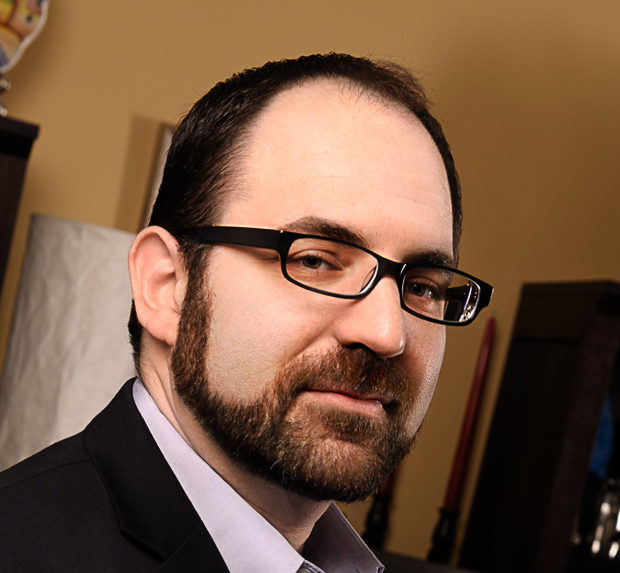Before I was a rabbi, I was a lawyer. Most of my legal career was spent assessing almost-inevitably doomed appeals. These were often criminal cases based upon what are popularly called “technicalities.” That work came back to me when I read the story of Nadav and Avihu, to which we return again this week in parshat Shemini.
The story is odd, if familiar from the yearly retelling. The Tabernacle has been dedicated, we read, and the first sacrifices accepted from it. Nadav and Avihu, tasked with the incense offerings, bring “strange fire,” eish zarah, incense they had not been commanded to bring (Lev. 10:1). Instead of the incense offering being accepted, we read that Nadav and Avihu were consumed by flames rushing forth from the Tabernacle.
The Torah foreshadows this episode. In Exodus 30:9, we read that the priests must not bring ketoret zarah – “strange incense.” What kind of incense is strange? That which was not commanded to be used (Lev. 10:1); we know little else.
After fire rips forth from the Tabernacle, we read as Moses tells Aaron that Nadav’s and Avihu’s deaths were a rebuke, a demonstration of divine power (Lev. 10:3). And then: vayidom Aharon – “but Aaron was silent.” Nadav and Avihu’s bodies are taken away, and the dedication of the Tabernacle continues. Aaron eventually objects – but only when Moses is angry at Aaron and his two remaining sons, Itamar and Eleazar, for not consuming a sin offering because they were in mourning (Lev. 10:16-20).
We’re left knowing only that Nadav and Avihu got a detail wrong – dramatically, disastrously wrong – and lacked an advocate even for their memory.
Most of my legal career was spent as a law clerk for a state appellate judge; my job involved watching other lawyers make mistakes. If practicing law is about sweating the small stuff, working as an appellate law clerk is often about watching other lawyers miss the small stuff, and seeing their clients suffer for it.
For a criminal defendant, counsel’s single, details-oriented mistake on the strength of a constitutional challenge to a search can mean a life sentence – or a death sentence. In a child welfare case, an attorney’s failure to raise a seemingly technical objection to a therapist’s testimony may mean that a parent never sees their child again. When overburdened public-interest lawyers make “small” mistakes like these, there is often nothing to be done when an appeal is filed. The attorney’s decisions are often held to be “good enough.”
The flames have already burst forth from the closest thing a democratic society has to the Tabernacle – its courthouses.
This week marks Yom HaShoah. Hitler seized power in a blitzkrieg against the fragile Weimar democracy. But Jews, Communists, Socialists, and others lost their liberties in gradual steps – not imperceptible, but not overnight: each year was worse than the one before, and laws were enforced differently in each locality.
Where were the would-be advocates?
In October 1933, ten thousand of them stood in front of the German Supreme Court building and swore allegiance to Hitler and the Volk. The German legal profession willingly abandoned those who most needed their help and readily betrayed their constitution – one lick of the Holocaust’s flames.
All for want of advocates.
Today, some lawyers are fighting back, and not only on a client-by-client basis. As a single example: Lawyers for Good Government (L4GG.org) has organized rapid-response teams to protect immigrants, created a county-by-county early warning system of volunteer lawyers to monitor threats to voting rights, and even lodged an attorney discipline complaint in Alabama against Attorney General Sessions. They won’t always be successful – but they show that American lawyers will keep fighting.
Details are not technicalities. They are instead the very essence of human rights. Without effective counsel, human rights are words on a page. Without effective counsel, we are helpless in the face of fire tearing forth from the courthouse Tabernacle, sacrificing human lives for tax cuts, a balanced budget, or the public posturing of a morality that enshrines the immoral.
Let’s support those who can hold back the flames.
Rabbi Jeremy Kridel serves as the Rabbi for Machar, the Washington Congregation for Secular Humanistic Judaism in Washington, D.C. Prior to entering the rabbinate, he was a deputy senior law clerk for a judge in the First District of the Court of Appeals of Indiana and was a visiting lecturer of law at the Indiana University Kelley School of Business – Indianapolis.

